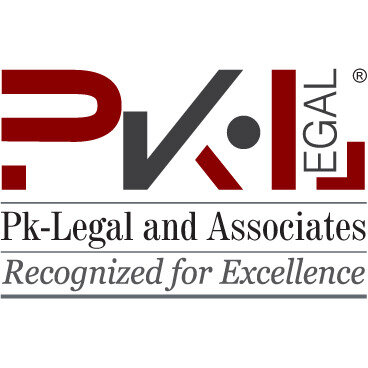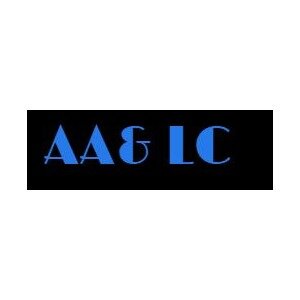Best Structured Finance Lawyers in Islamabad
Share your needs with us, get contacted by law firms.
Free. Takes 2 min.
List of the best lawyers in Islamabad, Pakistan
About Structured Finance Law in Islamabad, Pakistan
Structured finance refers to complex financial instruments and transactions that are tailored to meet specific needs of borrowers or investors. In Islamabad, Pakistan, it involves the pooling of financial assets and the use of legal frameworks to create new securities, facilitate large-scale investments, and manage risk. Common examples include asset-backed securities, project financing, and syndicated loans. The field is heavily regulated due to its complexity and the involvement of multiple parties, often requiring guidance from experienced legal professionals familiar with local regulations and international best practices.
Why You May Need a Lawyer
Structured finance arrangements often involve intricate contractual structures, significant financial exposure, and compliance with a wide array of local and international laws. You may need a lawyer in the following situations:
- Structuring and closing large or complex financing deals.
- Drafting or reviewing documents such as security agreements, trust deeds, or loan syndication contracts.
- Ensuring compliance with the rules and guidelines set by the Securities and Exchange Commission of Pakistan (SECP), State Bank of Pakistan (SBP), and relevant tax authorities.
- Resolving disputes among borrowers, lenders, trustees, or investors.
- Advising on cross-border finance transactions involving foreign investment or participation.
- Navigating issues related to securitization, asset reconstruction, or collateral enforcement.
- Protecting interests during insolvency or restructuring proceedings that involve structured finance products.
Engaging a qualified lawyer helps minimize legal risks, ensures regulatory compliance, and protects your financial interests during high-stakes transactions.
Local Laws Overview
The principal legal framework governing structured finance in Islamabad, Pakistan includes:
- Securities and Exchange Commission of Pakistan Act, 1997: Regulates capital market participants, including those involved in the issuance of structured finance products like sukuk or corporate bonds.
- Companies Act, 2017: Governs company formation, management, mergers, and acquisitions, which are often important in structured deals.
- Trusts Act, 1882: Covers the creation and administration of trust structures commonly used for securitizations and asset-backed securities.
- Banking Companies Ordinance, 1962 and Prudential Regulations: Impose requirements on banks and other financial institutions engaging in structured financing.
- State Bank of Pakistan Regulations: Oversee foreign exchange, lending practices, and risk management in syndicated and cross-border finance deals.
- Income Tax Ordinance, 2001: Tax treatment of structured finance transactions, especially concerning withholding taxes, profit repatriation, and capital gains.
- Islamic Finance Principles: Shariah-compliant financing is significant in Pakistan, influencing structures like sukuk and Islamic project finance.
Legal professionals must carefully navigate these overlapping laws and regulations to structure compliant and effective financial solutions for clients.
Frequently Asked Questions
What is structured finance?
Structured finance is a type of financing that uses customized financial instruments and legally complex structures, such as asset-backed securities, to meet unique business or investment needs.
Which entities can issue structured finance products in Islamabad?
Mainly public and private companies, non-banking financial companies, special purpose vehicles, and sometimes government bodies can issue structured finance products, subject to approvals from regulatory authorities.
How does Islamic finance impact structured finance in Pakistan?
Islamic finance principles strongly influence structured finance in Pakistan. Many instruments, like sukuk, must comply with Shariah law, prohibiting interest and certain risk-sharing structures.
Is legal due diligence required in structured finance transactions?
Yes. Legal due diligence is essential to assess risks, verify titles to assets, ensure regulatory compliance, and confirm contracts or security arrangements are enforceable.
What are the key risks in structured finance deals?
Risks include regulatory non-compliance, credit default, legal enforceability issues, tax implications, and operational failures in administering or servicing the underlying assets.
Which regulatory authorities oversee structured finance in Islamabad?
The Securities and Exchange Commission of Pakistan, State Bank of Pakistan, Federal Board of Revenue, and in some cases Shariah Advisory Boards oversee structured finance activities.
How are disputes in structured finance transactions resolved?
Disputes may be resolved through Pakistani courts or arbitration, depending on contract terms. It is common for contracts to specify dispute resolution mechanisms.
Are cross-border structured finance transactions allowed?
Yes, but they require regulatory approvals, compliance with foreign exchange laws, and sometimes additional scrutiny due to anti-money laundering and anti-terrorism regulations.
What is securitization and is it permitted in Pakistan?
Securitization is the pooling and repackaging of financial assets into tradable securities. It is permitted in Pakistan, subject to SECP regulations and appropriate legal structures.
How can I ensure my structured finance transaction is legally compliant?
Engage a qualified structured finance lawyer who understands the regulatory landscape, conducts due diligence, and drafts all legal documents in line with Pakistani law and international norms.
Additional Resources
Below are some valuable resources and organizations for guidance on structured finance in Islamabad:
- Securities and Exchange Commission of Pakistan (SECP) - for regulations and approvals
- State Bank of Pakistan (SBP) - for banking and foreign exchange matters
- Federal Board of Revenue (FBR) - for tax guidance
- Pakistan Banks’ Association - for industry standards and contacts
- Islamabad Chamber of Commerce and Industry - for connecting with finance professionals
- Legal aid societies and associations - for referrals to structured finance lawyers
Next Steps
If you require legal advice or assistance with structured finance in Islamabad, here is how you should proceed:
- Clearly define your financial objectives and the structure you wish to pursue.
- Identify any special requirements, such as Shariah compliance or cross-border elements.
- Consult resources provided by SECP and SBP for regulatory guidelines.
- Gather all relevant documents relating to your assets, liabilities, and intended transaction.
- Seek an initial consultation with an experienced lawyer or law firm specializing in structured finance.
- Ask about their experience with similar transactions, knowledge of local regulations, and their process for managing complex deals.
- Work closely with your lawyer to conduct due diligence, draft and negotiate documentation, and complete regulatory filings.
- Stay informed and actively engaged throughout the transaction process to ensure your interests are fully protected.
Early legal involvement is vital for success in structured finance arrangements, reducing risks and enhancing the likelihood of achieving your business goals.
Lawzana helps you find the best lawyers and law firms in Islamabad through a curated and pre-screened list of qualified legal professionals. Our platform offers rankings and detailed profiles of attorneys and law firms, allowing you to compare based on practice areas, including Structured Finance, experience, and client feedback.
Each profile includes a description of the firm's areas of practice, client reviews, team members and partners, year of establishment, spoken languages, office locations, contact information, social media presence, and any published articles or resources. Most firms on our platform speak English and are experienced in both local and international legal matters.
Get a quote from top-rated law firms in Islamabad, Pakistan — quickly, securely, and without unnecessary hassle.
Disclaimer:
The information provided on this page is for general informational purposes only and does not constitute legal advice. While we strive to ensure the accuracy and relevance of the content, legal information may change over time, and interpretations of the law can vary. You should always consult with a qualified legal professional for advice specific to your situation.
We disclaim all liability for actions taken or not taken based on the content of this page. If you believe any information is incorrect or outdated, please contact us, and we will review and update it where appropriate.

















